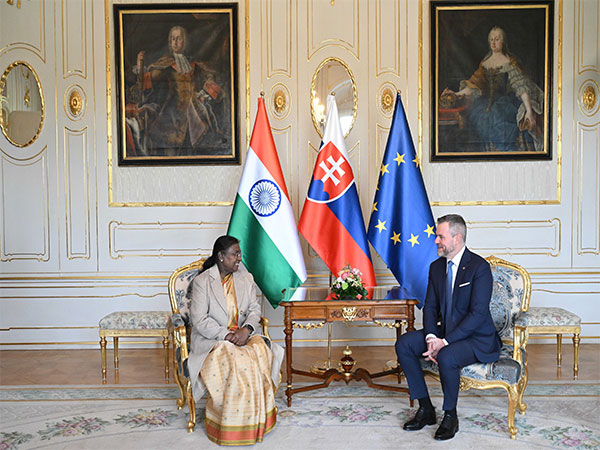Unfreezing Afghanistan's assets, ending sanctions will end up funding Taliban and its terrorist allies: Hussain Haqqani
Feb 15, 2022

Kabul [Afghanistan], February 15 : United Nations and other multilateral agencies can continue to send humanitarian assistance in Afghanistan but ending sanctions and offering recognition to Taliban as an incentive will do little to end the suffering of Afghans rather it will only end up funding a rogue regime and its terrorist allies, said Former Pakistan Ambassador to the United States Hussain Haqqani.
Taliban return to power has created a humanitarian crisis in Afghanistan that is worsening by the day.
Instead of acknowledging that the crisis has been created by its power grab, the Taliban is trying to use it to secure international recognition and legitimacy. There is also clamor for ending terrorism-related sanctions to save Afghan civilians from their effects," The Hill quoted Haqqani as saying.
The United States and other democracies should not fall for the Taliban's ruses. The Taliban's conduct as Afghanistan's rulers so far has not earned it the right to international legitimacy or recognition. Unfreezing Afghanistan's assets or routing aid through the Taliban will only end up funding a rogue regime and its terrorist allies," Haqqani said.
"Given that ideological predisposition, it is unlikely that unfreezing Afghanistan's assets or turning on the spigot of aid would have a moderating influence on the Taliban's behavior, towards its own people or in relation to international concerns about terrorism or drug-trafficking," he added.
Many international institutions are continuously showing their support and solidarity for the Afghan people but the Taliban are using humanitarian as a tactic to ask for funds and international recognition.
According to The Hill, the Taliban is likely to use international assistance to pay their troops, build effective machinery of repression and possibly support international terrorists currently brewing in its country.
The author emphasized that the Taliban are unlikely to maintain control in the country if it cannot create a functioning economy. Until the collapse of the U.S.-backed Kabul government last August, 80 percent of Afghanistan's budget was provided by international donors.
Even after many concessions made to the Taliban during the Doha talks, however, this has only led to the Taliban hardening its position, reported The Hill. The Analytical Support and Sanctions Monitoring team of the United Nations Security Council (UNSC) also suggests that Afghanistan is, once again, becoming a haven for international terrorism.
According to the U.N. report, released last Thursday, "There are no recent signs that the Taliban has taken steps to limit the activities of foreign terrorist fighters in the country. On the contrary, terrorist groups enjoy greater freedom there than at any time in recent history."
Given the Taliban's links to international terrorism, granting it formal recognition and legitimacy due to concerns about its failure to feed and protect the people it governs does not make much sense as revealed by Taliban's acting Prime Minister Mullah Hasan Akhund, declared in a speech that "the Taliban are not here to provide food for the people, but instead God will do that."
Akhund said that the Taliban had only three major objectives -- "exit of the US and its allies from Afghanistan, provision of security, and paving the way for a real Islamic system in the country." Building a functioning economy and attending to it people's needs is not even a priority.



















